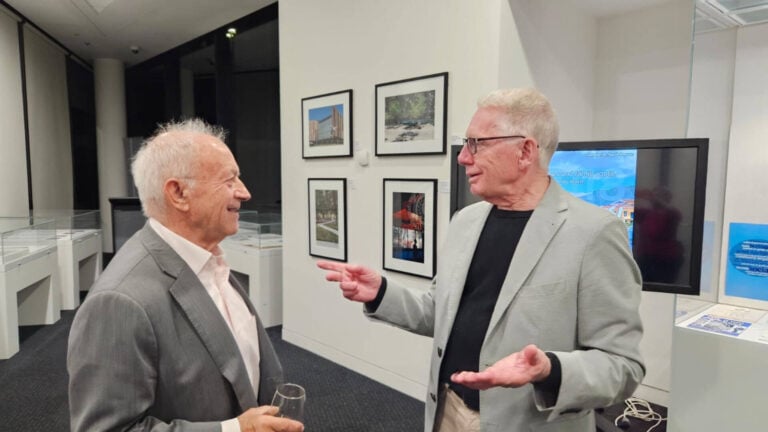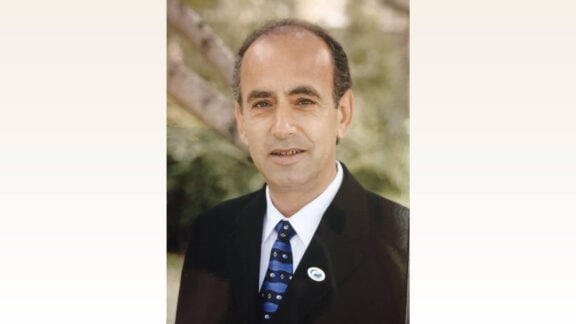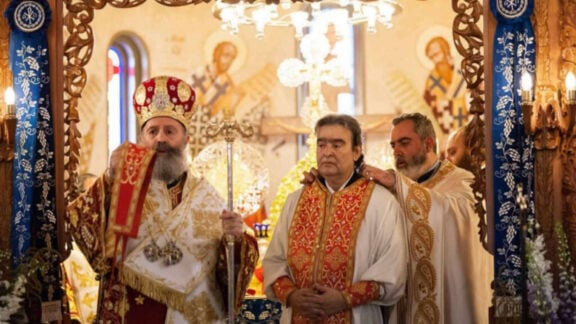The enduring mark that Hellenism has left on Macquarie University over the past 40 years was celebrated with the unveiling of an exhibition at the institution’s campus.
The exhibition titled ‘Παροικία: MUGA & Hellenism at Macquarie’ officially opened on September 17, and presented photographs, artworks, memorabilia and artefacts that honour the profound contribution of Hellenism to the university.
“The relationship of Hellenism and Macquarie University has always been ongoing – much like the concept of Hellenism itself,” said Angela Parsons, guest curator of the exhibition, to Neos Kosmos.
“The exhibition showcases this continuity: from ancient artefacts to videos capturing the cultural life of Greek-Australian students today.”
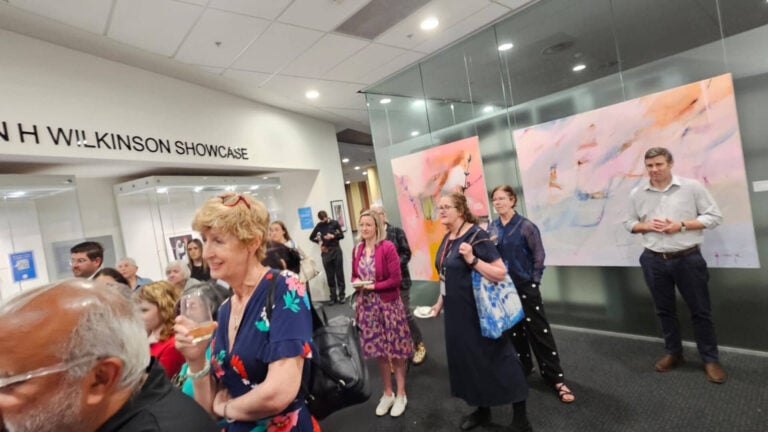
Parsons, a former Macquarie student, noted the idea for the exhibition came about four months ago following talks with curator Leonard Janiszewski, with it motivated by student group MUGA (Macquarie University Greek Association) celebrating its 40th anniversary last year.
“It felt like the perfect moment to celebrate this milestone and honour the influence of Greek-Australian students on campus life,” Parsons, who has Kastellorizian heritage, said.
The display includes works by ethnographic photographer Effy Alexakis, and artworks by renowned Australian artist George Raftopoulos from the university’s art collection, as well as, ancient Greek artefacts from the Macquarie University Gale Museum.
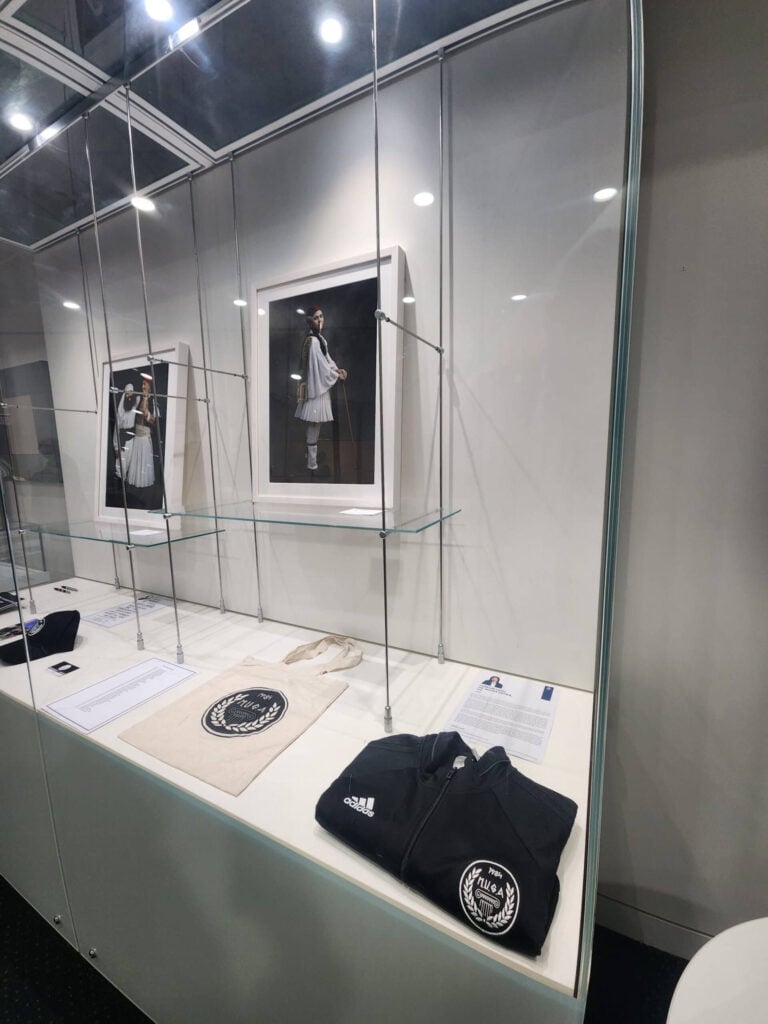
In the exhibition were also personal and community items, including MUGA memorabilia, clothing, photographs, and anniversary publications of MUGA’s Chronos magazine.
“In curating the exhibition, I spoke with former MUGA presidents and many people involved in Greek Studies at Macquarie to gather their stories,” Parsons said.
The curator highlighted how her experience working on this illuminated to her the immense impact MUGA has had and continues to have.
“The biggest takeaway was realising how one person’s vision can spark lasting change. In this case, it was Vasilis Georgiou, whose determination led to the founding of MUGA and laid the groundwork for future initiatives in Greek culture and studies at Macquarie,” she said.
“What surprised me most was discovering that the Greek Association is still thriving and, in fact, is the largest student group on campus in 2025!” Parsons said. She also noted that institutions like the Macquarie Greek Studies Foundation and the Greek-Australian Society can be traced directly to the university.

The future of Modern Greek studies at Macquarie has been notably reported as coming to an end, which Parsons argued makes it all the more appropriate such an exhibition exists that can pay tribute to the legacy of Hellenism at the tertiary institution.
“Although the program is no longer offered, it influenced the university’s academic and cultural life for years with initiatives like summer schools in Greece and international conferences.”
“The work of scholars, including former Head of Modern Greek Studies, Dr Elizabeth Kefallinos, and current Lecturer in Global Cultures and Languages, Dr Patricia Koromvokis, continues to strengthen ties with Greece, ensuring that the legacy of Modern Greek remains part of the university’s history.”
The exhibition will be on display at Macquarie University Waranara Library exhibition space until November 5.
